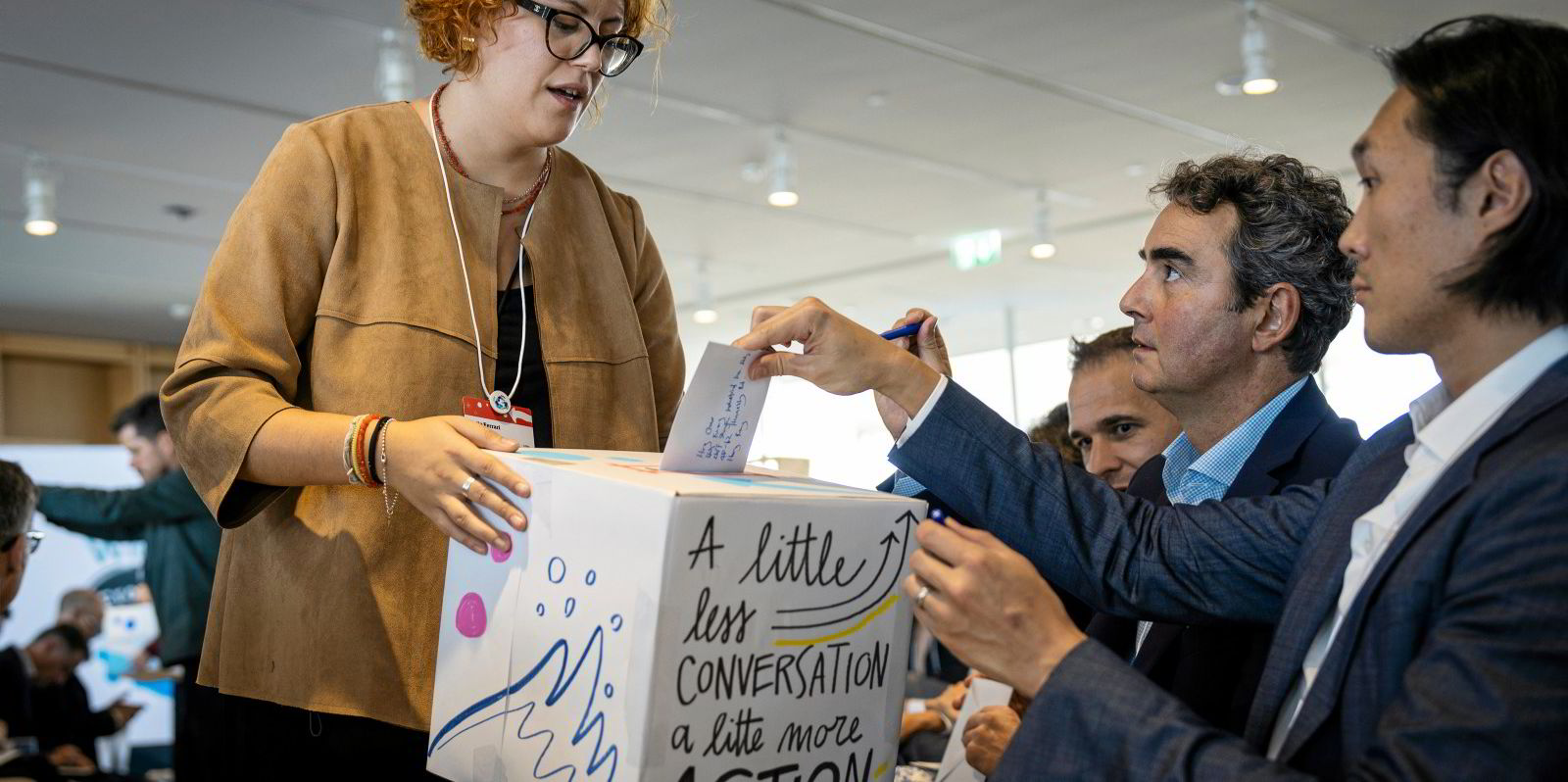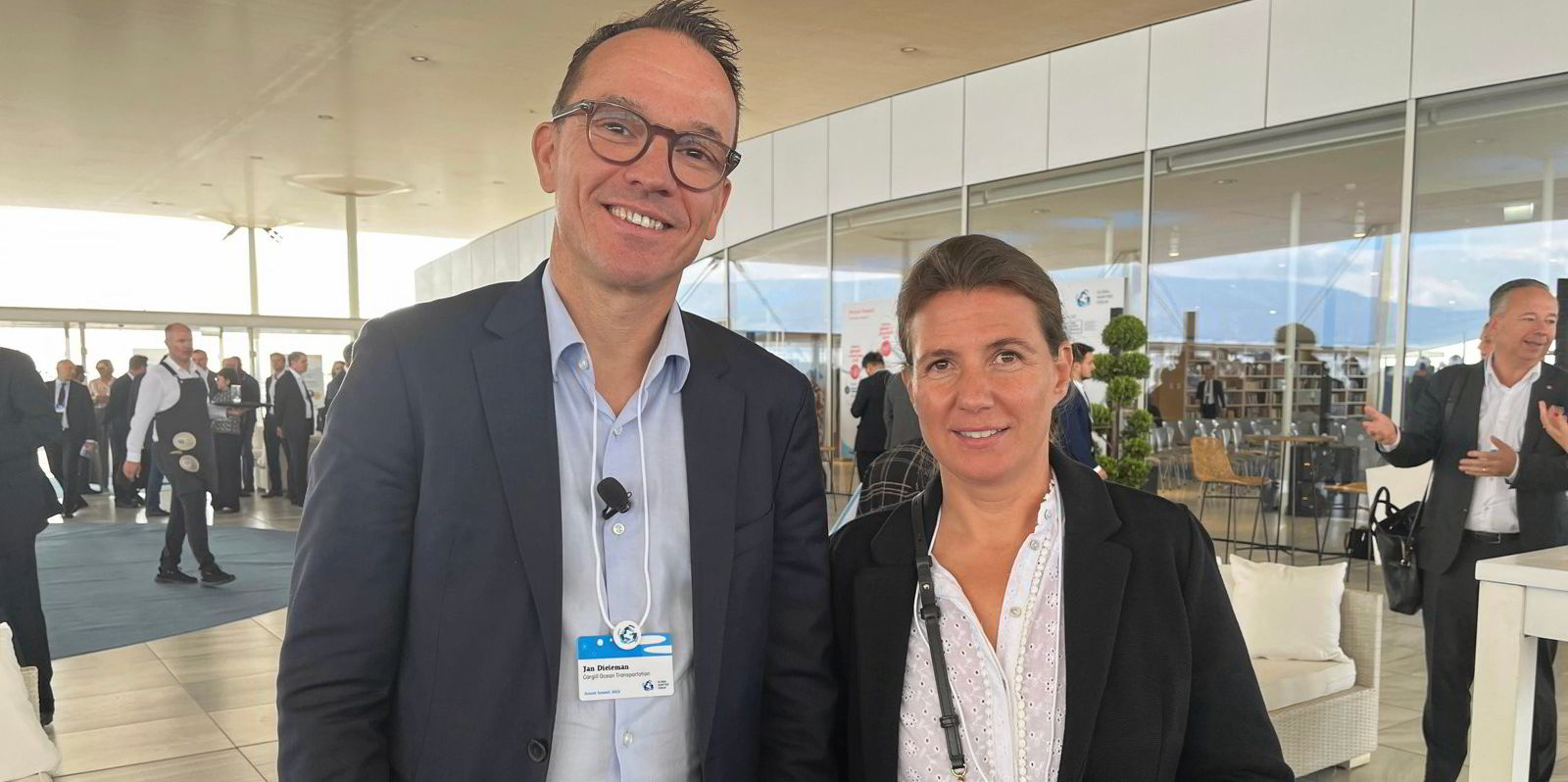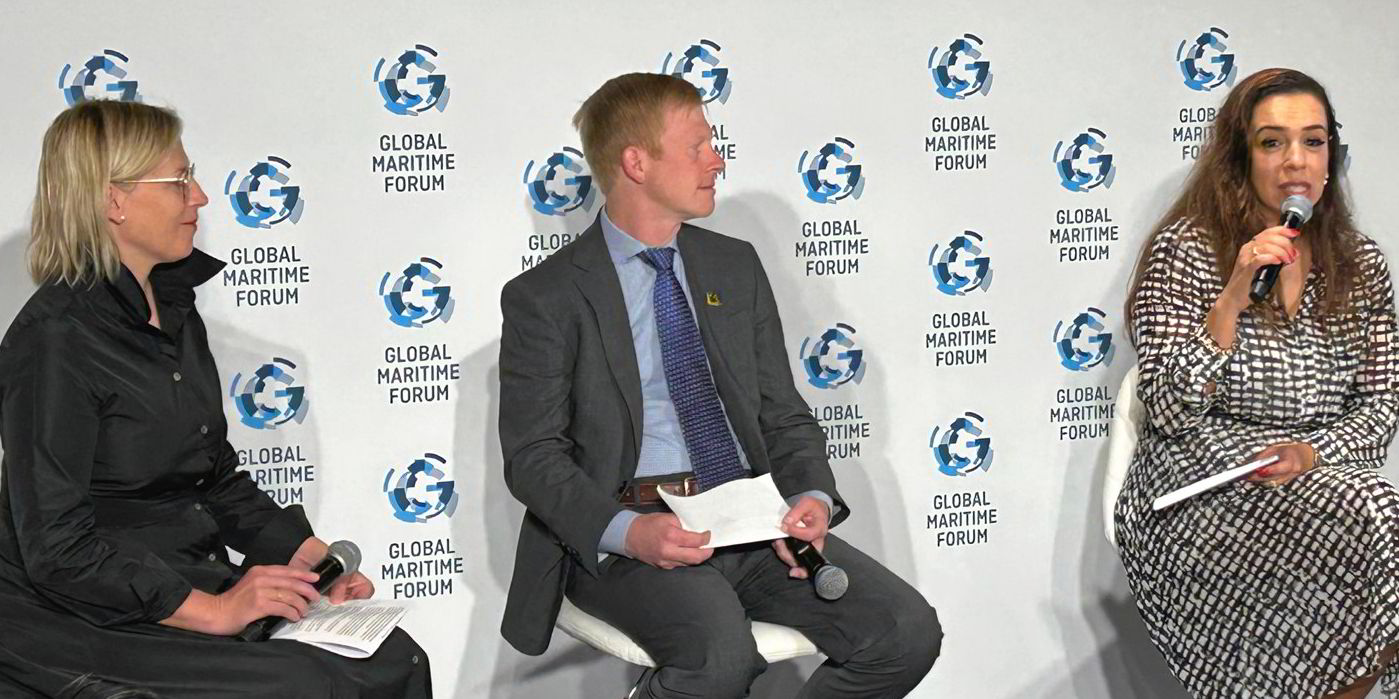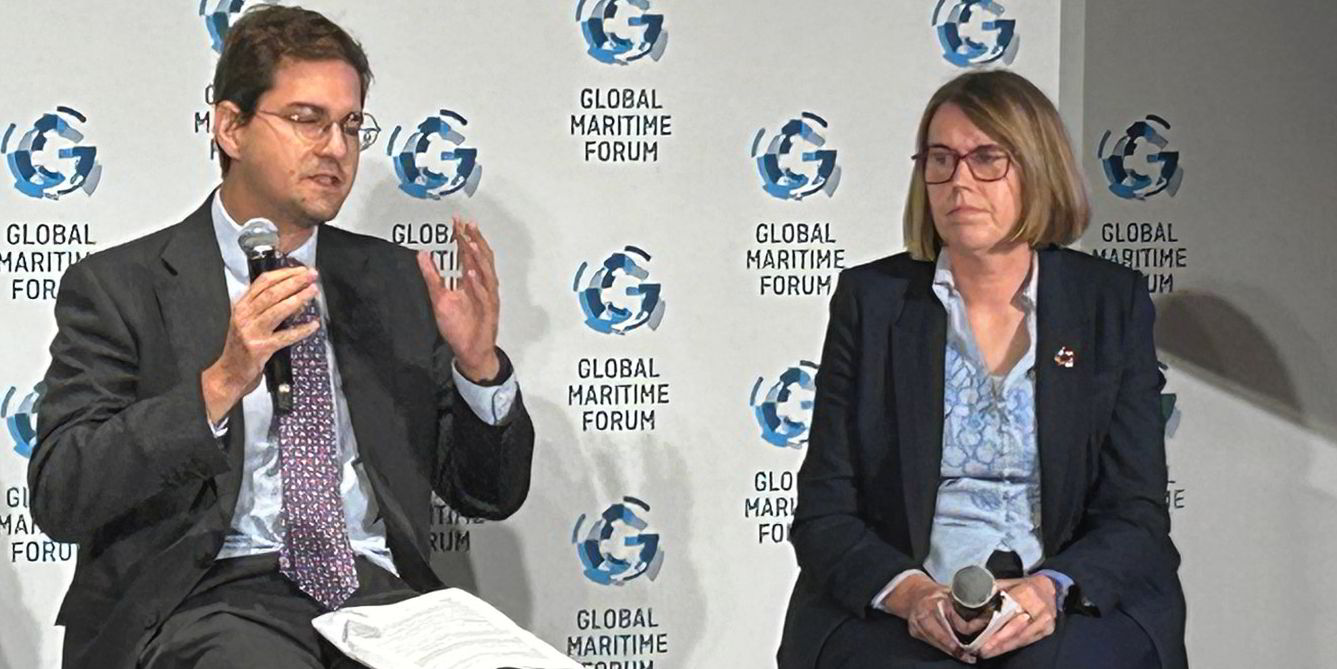“What now: From ambition to action” was the suitably challenging and self-critical theme for last week’s Global Maritime Forum annual summit in Athens.
While ambition for faster decarbonisation, greater sustainability and better employment conditions are themes often spoken of by the more than 300 influential senior executives from across the shipping business ecosystem who attended, they are also well aware that action is hard to deliver.
It was Mark Ross who captured the mood of delegates at the not-for-profit organisation’s sixth annual summit, hosted in the architecturally striking top floor lighthouse of the Stavros Niarchos Foundation Cultural Centre.
The president of Chevron Shipping told the closing plenary session: “I’ve really enjoyed the last few days. I think we have made progress.
“But, in the words of the King — and I’m not talking about Charles, I’m talking about Elvis Presley — we need: ‘A little less conversation, a little more action’.”
A fresh sense of urgency was injected into the three days of debates and workshops by the unanimous decision in July of member nations of the International Maritime Organization to adopt a new, more aggressive decarbonisation target for shipping — effectively aiming for zero emissions around 2050.
While the overall ambition gave renewed focus, many questions remain about the details of IMO policy and the implications for the speed of supply and use of new green low-carbon fuels such as ammonia and methanol.
Eman Abdalla, Cargill Ocean Transportation’s global operations and supply chain director, said: “It is not a matter of ‘if’. It’s about embracing what’s to come and embracing change to inspire bolder ambitions and actions.”
Stena’s sustainability director, Claes Berglund, said you had to understand shipping is driven by its customers and regulations. “Perhaps the rule book for decarbonisation is not finished yet. That is probably the biggest factor we are seeing in our progress.
“Tristan Smith asked me at the Hong Kong summit [in 2018]: ‘All these people in the same room want to do this, but why are we seeing so little happening? I think the rule book is still not yet there, so we have problems to act. That’s the problem today and for the future’.”
Another attendee added: “Maybe the rulebook is not yet finished — and maybe it never will be — but the playbook is coming up, and we see people taking advantage of that to move ahead.”
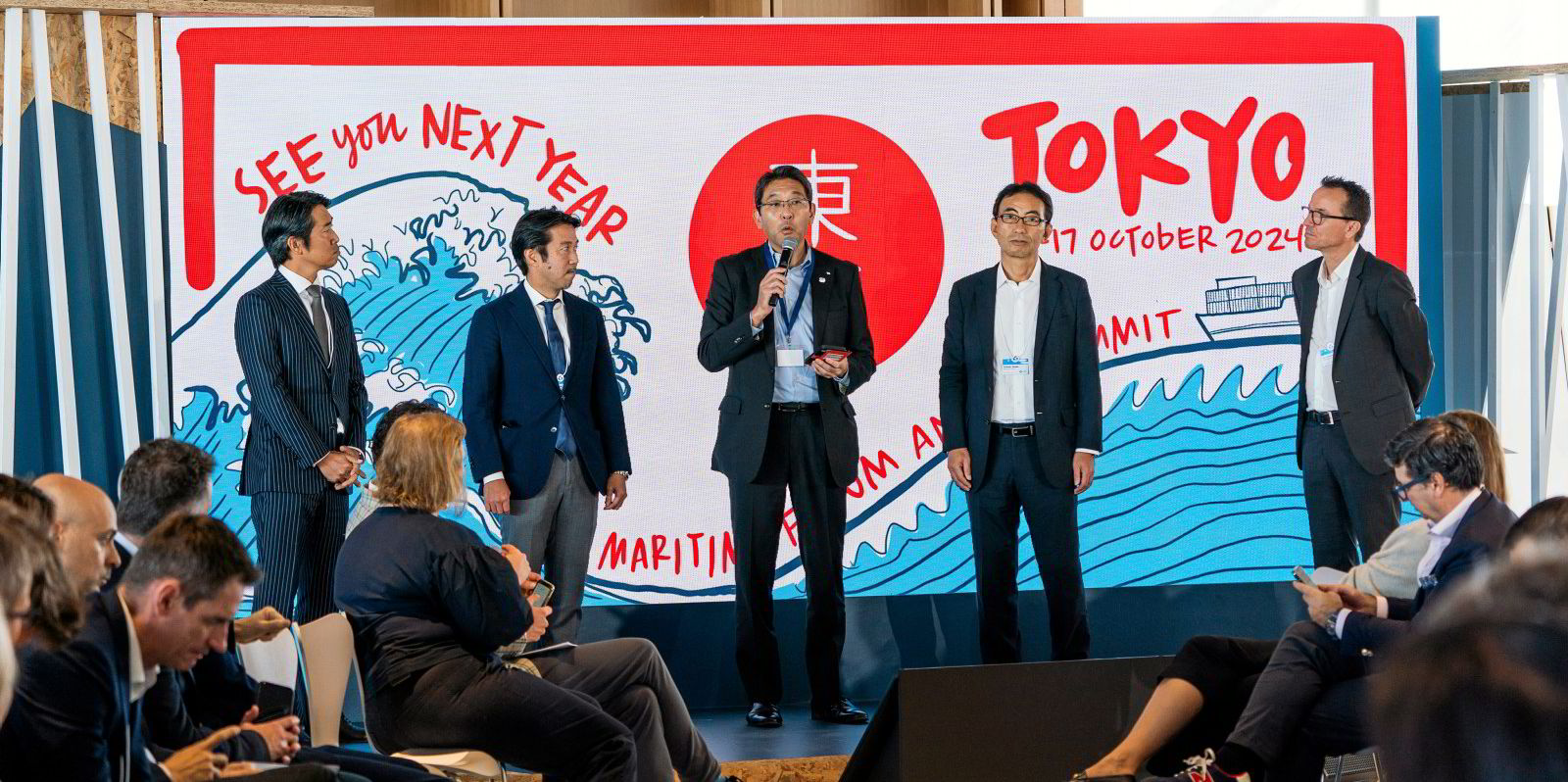
In response, Smith, associate professor at UCL Energy Institute, said there was an issue with how the narrative of the energy transition is framed. “We can’t design the transition. I don’t think it’s possible, even though I would like it to be possible. I don’t think it is conceivable for us to sit in a room, write a plan and execute it for the next two and half decades,” he said.
Smith, who with his team has become a pivotal analyst of shipping’s transition, said the process would inevitably be more fluid. The shift “emerges as a function of the interactions, the conflicts, the jostling that happens. A significant percentage of that is between the stakeholders that are in this room.”
With the “scapegoat” of IMO inaction now resolved, the industry is set to move into an implementation phase. “I think you need to find a really good way to learn from all the experiences of the companies here and avoid those bad experiences becoming narratives to drive the direction and aligning of decisions that will be made.”
Lynn Loo, CEO of the Global Centre for Maritime Decarbonisation, added that the transition would be full of uncertainty. “Following up on Tristan, if there is one thing that’s certain, it’s the uncertainty. I think the fuel transition is going to be messy. It is going to take a long time. We hope to shorten that, but it’s going to take a long time.
“I’m emboldened by the conversations here because I think we are all going to make mistakes together. But there is a path forward, and we should feel empowered by that. There are going to be stranded assets, but we are hoping we are going to minimise them. There are going to be mistakes; it is going to be messy, and we should just accept it.”
Randy Chen, vice chairman of Wan Hai Lines, said he thought it was important not to seek an absolute solution. “I mean that ‘failing forward’ is still a success if we are able to reduce the amount of carbon.
“I think there is a tangible realisation that embracing just plainly green solutions is not the only way to achieve what we are all here to do, which is to make an impact.”
Over the last year, the Poseidon Principles — the banking initiative started under the GMF — has grown in scope, said Paul Taylor, global head of shipping at Societe Generale. “What we’ve seen in the last 12 months is the increased ambition of the 34 banks that are now signatories to the Poseidon Principles to follow what the IMO has come out with.
“That is really ambitious because if you look at most of the banks today, they are misaligned with previous IMO trajectory, so to align with the new one is a real challenge. The only way to do that is to genuinely change lending behaviour. And that has started.
“There is more stringent origination now for lending on vessel financing, for sure. Capital is scarce, and it is going to be allocated to clients who are committed to the energy transition, who make public commitments, who show their commitment through investment, through communication, and through sustainability reports.”
GMF chairman Jan Dieleman was aware that bringing the GMF to Athens would challenge some traditional Greek shipowning community members, with the forum’s sustainability and human well-being focus across the shipping supply chain.
However, an array of influential Greek owners were vocal in their support for the forum’s ability to mobilise a coalition of like-minded companies. Charis Plakantonaki, sustainability director at Star Bulk Carriers, said the forum was a “fantastic way to bring private companies close to governments and explain what is needed on their behalf”.
Paolo Enoizi, chief executive of Peter Livanos’ GasLog, said he took confidence from the number of projects and initiatives those at the forum are developing.
“It is really interesting to see that this is happening for many of us. That is something that, as the GMF, we can probably build on and aggregate and share the developments, setbacks and the lessons all of us are experiencing.”
While individual companies can make their own decisions, coalitions such as the GMF can play a vital role, said BW Group chairman Andreas Sohmen-Pao.
“My reflection is progress happens at different levels. One is a forum like this — like GMF. It will necessarily trend towards conversation because it is difficult to have action with 100 people, but very valuable in sowing the seeds of action.
Another level is individual companies where you can move very fast and implement policies, but you don’t have the power to change the world or supply chains, he continued.
“The intermediate level — which is so powerful because it straddles the two — is coalitions: the GMF with the All Board Alliance, Poseidon Principles, and others… Maybe we should think about creating more of these coalitions in this ‘central level’, as I call it, that are big enough to effect change and small enough to get stuff done.”
